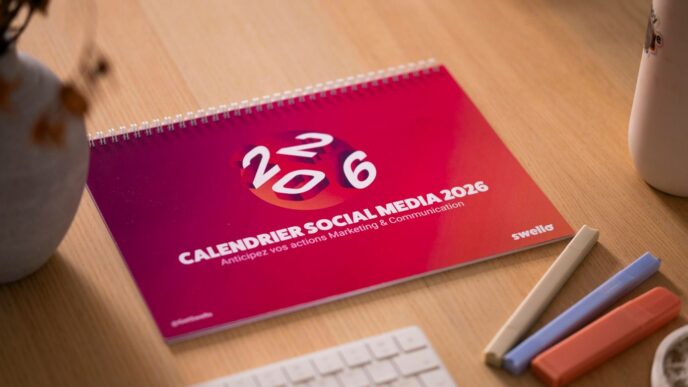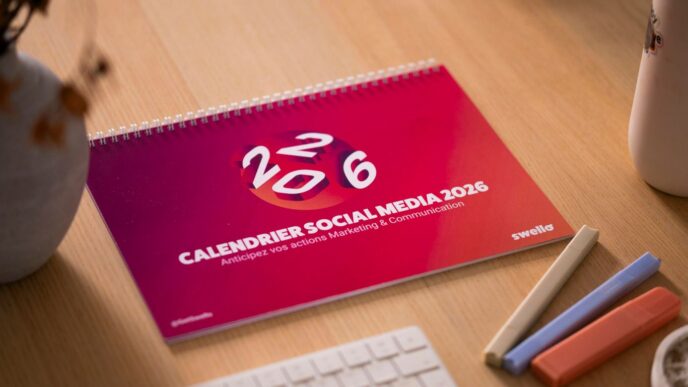Finding the right seo agency for saas companies can feel like a big task. You want someone who really gets how SaaS works, not just general marketing stuff. This guide is here to help you sort through the options. We’ll look at what makes a SaaS SEO agency stand out and how to pick one that will actually help your business grow. It’s about finding a partner who understands your goals and can deliver real results, not just pretty reports.
Key Takeaways
- SaaS SEO is different from general SEO; it focuses on the entire customer journey for subscription software, aiming for predictable revenue.
- Look for agencies with a proven track record specifically in the SaaS sector, not just broad B2B experience.
- Evaluate agencies based on tangible results like demo bookings and MRR growth, not just traffic or rankings.
- Transparency in reporting, pricing, and communication is vital; avoid agencies that use templates or vague strategies.
- The best seo agency for saas companies will tailor their approach to your company’s specific growth stage and needs.
Understanding the Value of a Specialized SaaS SEO Agency
Why SaaS SEO Differs from General SEO
Look, trying to get a SaaS product found online isn’t quite the same as selling, say, a pair of shoes or a local plumbing service. It’s a whole different ballgame. General SEO agencies might know how to get more eyeballs on a website, but they often miss the nuances that matter for software-as-a-service businesses. SaaS has a unique customer journey, usually involving longer sales cycles, multiple decision-makers, and a focus on recurring revenue. A generic approach might bring in a lot of traffic, but is it the right traffic? Probably not. Specialized SaaS SEO agencies get this. They understand that your goal isn’t just clicks; it’s qualified leads, demo requests, and ultimately, paying subscribers. They know how to target keywords that indicate high purchase intent, not just casual interest. They also understand the technical side of SaaS – things like complex website structures, integration points, and the importance of user experience for retention, which all play a role in search rankings.
The Role of SEO in the SaaS Customer Lifecycle
SEO isn’t just about getting found initially; it plays a part throughout the entire customer journey for a SaaS product. Think about it:
- Awareness: Someone has a problem, and they search for solutions. Good SEO puts your SaaS in front of them when they’re just starting to look.
- Consideration: They’re comparing options. SEO helps you rank for comparison terms and provides content that educates them about why your solution is better.
- Decision: They’re ready to buy or try. SEO can capture those last-minute searches for your brand name or specific feature sets.
- Retention: Even after they become a customer, SEO can help by providing support content, feature updates, and best practices that keep them engaged and reduce churn. This full-funnel approach is what separates good SaaS SEO from the rest.
Key Benefits of Partnering with SaaS SEO Experts
Working with an agency that truly gets SaaS can make a huge difference. They bring a level of insight that generalists just can’t match. Here are some of the big wins:
- Targeted Lead Generation: Instead of just more traffic, you get more qualified leads who are more likely to convert into paying customers. This means less wasted marketing spend and a better return on investment.
- Deeper Market Understanding: They know your competitors, your industry’s jargon, and the specific pain points your target audience is searching for solutions to.
- Efficient Growth: Because they understand the SaaS model, they can build strategies that align with your sales funnel and drive measurable business outcomes like demo bookings and trial sign-ups, not just vanity metrics.
- Adaptability: The search landscape changes constantly. SaaS SEO pros are on top of algorithm updates and new search trends, like AI-driven search results, ensuring your strategy stays effective.
Identifying Agencies with Proven SaaS Success
Finding the right SEO agency for your SaaS company isn’t just about picking one that knows SEO; it’s about finding one that truly gets the SaaS world. You need a partner who understands your business model, your customers, and how to turn search traffic into actual paying users. This means looking beyond generic promises and digging into what really matters.
Evaluating SaaS-Specific Expertise and Focus
This is where you separate the pretenders from the real deal. A general SEO agency might know how to rank a blog post, but do they understand the nuances of a long SaaS sales cycle, multiple decision-makers, or the importance of trial sign-ups versus immediate purchases? You want an agency that lives and breathes SaaS. Ask them directly: What percentage of their clients are SaaS companies? Do they have experience with businesses similar to yours in terms of product complexity or target market? Look for agencies that talk about things like "product-led growth SEO" or "customer acquisition cost reduction" rather than just "more traffic."
- Look for specialization: Agencies that focus solely on SaaS or B2B tech often have frameworks already built around your funnel.
- Check their client list: Do they have recognizable SaaS brands on their roster? This is a good sign they understand the landscape.
- Review their content: Do they publish blog posts or case studies about SaaS SEO challenges and solutions? This shows they’re invested in the space.
Analyzing Tangible Results and ROI
Anyone can show you a graph with an upward trend, but what does that trend actually mean for your business? For SaaS, vanity metrics like raw traffic numbers or keyword rankings for obscure terms are less important than metrics that directly impact your bottom line. You need to see proof that their SEO efforts translate into qualified leads, demo requests, trial sign-ups, and ultimately, paying customers. Don’t be afraid to ask for specific examples.
| Metric Category | What to Look For |
|---|---|
| Lead Generation | Demo requests, trial sign-ups, contact form submissions |
| Conversion Rates | Visitor-to-lead, lead-to-customer conversion rates |
| Revenue Impact | Contribution to MRR/ARR, customer acquisition cost |
| Search Visibility | Rankings for high-intent commercial keywords |
Assessing Client Satisfaction and Testimonials
Past performance is often the best indicator of future results. While case studies show what an agency claims to have achieved, client testimonials and reviews give you a sense of the client experience. Are their clients happy? Do they feel the agency is a true partner? Look beyond the star ratings on review sites. Read the actual comments. Are there recurring themes, either positive or negative? A good agency will have clients who are willing to vouch for them, not just because of the results, but because of the working relationship.
- Check review platforms: Sites like G2, Capterra, and Clutch can offer unfiltered feedback.
- Ask for references: A reputable agency should be willing to connect you with current or past clients.
- Look for long-term relationships: Clients who have worked with an agency for years often indicate a high level of satisfaction and trust.
Key Services Offered by Top SaaS SEO Agencies
When you’re looking for an agency to help your SaaS business climb the search rankings, you’ll notice a few core services pop up again and again. These aren’t just generic SEO tasks; they’re tailored to the specific needs of software companies. Think of it as getting a specialized mechanic for your high-performance car, not just someone who can change a tire.
Strategic Keyword Research and Content Creation
This is where it all starts. A good agency won’t just throw keywords at the wall. They’ll dig deep to find what your ideal customers are actually typing into Google when they have a problem your software can solve. This means looking beyond simple terms and finding those "commercial intent" keywords – the ones that signal someone is ready to buy or at least seriously consider a solution. They’ll then use this research to build content that directly answers those questions, positioning your product as the go-to answer. This isn’t just about writing blog posts; it’s about creating targeted resources that guide potential customers through their buying journey.
Technical SEO and Platform Optimization
Your website needs to be a well-oiled machine for search engines. This involves a lot of behind-the-scenes work. Agencies will check things like:
- Site Speed: Is your site loading fast enough? Slow sites lose visitors and rank poorly.
- Mobile-Friendliness: Does your site work well on phones and tablets?
- Crawlability and Indexability: Can search engines easily find and understand all your important pages?
- Structured Data: Helping search engines understand the content on your pages more deeply.
- User Experience (UX): Making sure visitors can easily find what they need and have a good time on your site.
For SaaS, this also means optimizing complex web applications and ensuring your platform is built to scale without SEO issues cropping up later.
Link Building and Authority Development
Backlinks are like votes of confidence from other websites. The more high-quality, relevant sites that link to yours, the more trustworthy and authoritative your site appears to search engines. SaaS SEO agencies focus on earning these links from reputable sources within your industry or tech communities. This isn’t about spamming links; it’s about building relationships and creating content so good that other sites naturally want to link to it. They’ll also look at competitor link profiles to find opportunities.
Generative Engine Optimization for AI Search
This is the new frontier. With AI like Google’s AI Overviews and ChatGPT becoming more common, how people search is changing. Agencies that are on the ball are figuring out how to get your SaaS product featured in these AI-generated answers. This might involve structuring your content in specific ways or ensuring your site has the authoritative information AI models rely on. It’s about adapting to the future of search, not just sticking to what worked yesterday.
The Hiring Process: From Research to Selection

Okay, so you’ve decided you need some help with your SaaS SEO. That’s a big step! But now comes the part where you actually find the right agency. It can feel a bit overwhelming, like trying to pick the best tool out of a giant toolbox. Don’t worry, we’ll break it down.
Building Your Shortlist of Potential Partners
First things first, you can’t just pick the first agency you see on Google. You need to do a little digging. Start by asking around in your network – who have other SaaS companies you trust worked with? Check out industry forums and even sites like Reddit where people often share honest opinions. Look for agencies that specifically mention working with SaaS businesses, not just general "digital marketing." You want someone who gets your world.
Here’s a quick way to start narrowing things down:
- Check their website: Do they have case studies? Do these case studies show actual business results (like more trial sign-ups or paying customers), not just traffic numbers?
- Look at their clients: Are they working with companies similar to yours in size and industry?
- Read reviews: What are people saying about them on third-party sites?
Try to get a list of about 5-7 agencies that seem like a good fit. This gives you options without being too many to manage.
Conducting Effective Discovery Calls
Once you have your shortlist, it’s time to talk to them. This is your chance to see if they’re the real deal. Don’t just let them pitch you; you need to ask the right questions. Come prepared with your own goals and KPIs. What does success look like for your SaaS? Is it more demo requests, higher conversion rates from free trials, or something else? Ask them how they plan to achieve your specific goals, not just generic SEO wins.
Here are some things to ask about:
- Their process: How do they actually do the work? What tools do they use? Who will be working on your account?
- SaaS experience: Ask for specific examples of how they’ve helped SaaS companies like yours. What were the results?
- Reporting: How will they show you progress? Will you get regular updates? Can you see how their work ties back to your business goals (like revenue)?
- Communication: How often will you connect? Who is your main point of contact?
Listen carefully to their answers. Do they sound like they understand your business model and your customers? Do they talk about metrics that matter to your bottom line, like qualified leads and customer acquisition cost, or just traffic and rankings?
Assessing Agency Methodologies and Tech Stack
This might sound a bit technical, but it’s important. You want to know how they work and what they use. A good SaaS SEO agency will have a clear methodology. They won’t just be throwing spaghetti at the wall to see what sticks. They’ll have a structured approach to research, strategy, execution, and reporting.
Ask them about:
- Their approach to keyword research: Do they just look at search volume, or do they consider buyer intent and where a user is in their decision-making process?
- Content strategy: How do they decide what content to create or update? Do they look at competitor content, user questions, and AI search trends?
- Technical SEO: What’s their process for finding and fixing technical issues on your website that might be hurting your rankings?
- Link building: How do they approach getting high-quality backlinks for your SaaS site?
- Tools: What SEO software do they rely on? While you don’t need to be an expert, knowing they use industry-standard tools (like SEMrush, Ahrefs, or specialized SaaS analytics platforms) is a good sign.
Also, consider how they handle AI search. With things like Google’s AI Overviews becoming more common, an agency that understands how to optimize for these new search formats is ahead of the curve. They should be able to explain how they’ll adapt your strategy to ensure you’re visible in these emerging AI-driven results.
Ensuring Transparency and Performance Alignment
Okay, so you’ve found a few agencies that seem to know their stuff when it comes to SaaS. That’s great. But before you sign anything, you need to make sure you’re on the same page about what they’ll do and how you’ll know if it’s actually working. This is where transparency and performance alignment come in. It’s not just about getting more traffic; it’s about getting the right kind of traffic that turns into paying customers.
Understanding Pricing Structures and Value
Agencies have different ways of charging, and it’s important to get this sorted out early. Some might charge a flat monthly fee, others an hourly rate, and some might even have performance-based bonuses. You need to figure out what makes sense for your budget and what kind of value you’re expecting. Don’t just look at the price tag; consider what you’re actually getting for your money. A higher price might be worth it if the agency has a proven track record of driving real business results for SaaS companies like yours.
Here’s a quick look at common pricing models:
- Retainer: A fixed monthly fee for ongoing services. Good for predictable budgeting.
- Project-Based: A one-time fee for a specific project, like a website audit or content strategy.
- Hourly: You pay for the actual time spent on your account. Can be flexible but harder to budget.
- Performance-Based: A portion of the fee is tied to achieving specific goals (e.g., lead generation, revenue). This can be great but requires clear metrics.
Demanding Customized Strategies Over Templates
Be wary of any agency that talks about using a "proven template" for your strategy. SaaS businesses are unique. Your product, your audience, your sales cycle – it’s all different. A cookie-cutter approach just won’t cut it. You need an agency that takes the time to learn your business inside and out and then builds a strategy specifically for you. This means they should be asking a lot of questions about your goals, your current marketing efforts, and your ideal customer profile.
Ask them directly:
- How will you tailor your strategy to our specific SaaS product and market?
- What research will you conduct to understand our unique customer journey?
- Can you show examples of how you’ve adapted strategies for similar SaaS companies?
Verifying Transparent Reporting and Communication
This is a big one. You should always know what’s going on with your SEO efforts. Good agencies provide regular, clear reports that go beyond just listing keywords and traffic numbers. They should be able to show you how their work is impacting your business goals, like demo requests, trial sign-ups, or even actual revenue. Regular check-ins, whether weekly or bi-weekly, are also key. This isn’t just about getting a report; it’s about having a conversation about performance, insights, and next steps.
Look for agencies that offer:
- Live dashboards: Real-time access to key performance indicators.
- Pipeline-linked reporting: Showing how SEO efforts contribute to sales pipeline and revenue.
- Regular strategy reviews: Scheduled meetings to discuss progress and adjust plans.
- Clear communication channels: Easy ways to reach your account manager with questions.
If an agency can’t or won’t provide this level of transparency, it’s probably a red flag. You want a partner, not just a vendor, and that means open communication and clear accountability.
Matching Agency Capabilities to Your SaaS Growth Stage

So, you’ve figured out you need an SEO agency, but not just any agency. You need one that gets SaaS. The thing is, not all agencies are built the same, and what works for a startup might not be the best fit for a company that’s been around for a while. It’s all about finding the right match for where your company is right now.
Full-Service Partners for Early-Stage Teams
If you’re just starting out, maybe you’ve got a great product but organic search is a big question mark. You probably don’t have a dedicated SEO person on staff, and you need someone to handle pretty much everything. This is where a full-service agency really shines. They can come in and build your SEO foundation from the ground up. Think keyword research, content creation, technical fixes, and getting those first few backlinks. They’re basically an extension of your small team, taking the reins on your organic growth.
- Strategy Development: They’ll help define your target audience and search intent.
- Content Creation: Producing blog posts, landing pages, and other assets.
- Technical SEO: Making sure your website is crawlable and indexable.
- Link Building: Starting to build your site’s authority.
These agencies often work with companies that are looking to get their first 100 customers or break into a new market. They focus on getting you visible and driving initial traffic that can turn into early adopters. You’re looking for an agency that understands the hustle of a startup and can deliver tangible results without needing constant hand-holding.
Specialized Support for Growth-Stage Companies
Once your SaaS product is gaining traction, your needs change. You might have some content already, and maybe a basic understanding of SEO, but you’re hitting a wall. Growth-stage companies often need help refining their strategy, scaling their content efforts, and really digging into conversion rate optimization (CRO) through SEO. This is where agencies that specialize in specific areas, like full-funnel SEO or data-driven content frameworks, become super helpful. They can help you move beyond just traffic and focus on generating qualified leads and moving users through your sales funnel. They’re good at looking at what’s working and doubling down, or identifying what’s not and fixing it. They’ll often have a strong focus on tying SEO performance directly to pipeline contribution, which is key when you’re trying to show serious growth.
| Focus Area | Typical Agency Approach |
|---|---|
| Lead Generation | Targeting high-intent keywords, optimizing for MQLs/SQLs |
| Content Scaling | Developing content clusters, topic authority |
| Conversion Focus | Aligning SEO with CRO, improving trial-to-paid conversion |
| Attribution Modeling | Linking SEO efforts to CRM data and revenue |
Agencies for Enterprise Teams with Technical Gaps
For larger, established SaaS companies, the situation can be different again. You might have a robust marketing team, in-house writers, and a solid content strategy already in place. However, you might be struggling with complex technical SEO issues, advanced link-building strategies, or keeping up with the latest search engine algorithm changes, especially with the rise of AI search. In these cases, you might not need a full-service agency, but rather one that can fill specific technical gaps. These agencies often have deep technical SEO knowledge or advanced link-building capabilities. They can work alongside your existing team, providing specialized expertise where you need it most. They’re the ones who can tackle intricate site migrations, optimize for complex user journeys, or help you get a handle on generative engine optimization. The goal here is to fine-tune your existing efforts and address specific bottlenecks that are holding back your enterprise-level growth. Finding the right SaaS SEO agency that understands your scale and specific challenges is key.
Wrapping It Up
So, finding the right SEO agency for your SaaS business isn’t just about picking a name from a list. It’s about finding a partner who really gets how SaaS works – the long sales cycles, the recurring revenue, the whole deal. You want someone who can show you real results, not just pretty charts. Think about what you need most, whether it’s more demo bookings or better rankings for specific keywords. Do your homework, ask tough questions, and look for proof that they’ve helped companies like yours before. Getting this right means your SEO efforts will actually turn into paying customers, which is what we’re all after, right? It’s a big decision, but with the right agency, your organic growth can really take off.
Frequently Asked Questions
Why is SEO for SaaS companies different from regular SEO?
SaaS SEO is special because it focuses on getting people who are likely to buy your software. It’s not just about getting lots of website visitors, but about attracting the *right* visitors who will sign up for a trial or a demo. This means understanding how people buy software, which often involves a longer decision process and multiple people involved in the choice.
What’s the main goal of hiring a SaaS SEO agency?
The main goal is to make your software company more visible online so that more potential customers find you through search engines. These agencies help bring in people who are actively looking for solutions like yours, aiming to turn those visitors into paying customers and grow your business steadily over time.
How can I tell if a SaaS SEO agency is good at what they do?
Look for agencies that have success stories with other software companies, especially ones similar to yours. Ask them to show you proof of how they’ve helped businesses get more customers or sales, not just more website traffic. Good agencies will also be clear about how they work and what results you can expect.
What kind of services should I expect from a top SaaS SEO agency?
You can expect them to do things like find the best words people search for to find software like yours, create helpful articles and website content that answers customer questions, fix any technical issues on your website that might be hurting your search ranking, and build your website’s reputation online.
How long does it usually take to see results from SaaS SEO?
SaaS SEO is usually a long-term plan. You might start seeing some improvements in a few months, but it often takes 6 to 12 months or even longer to see really big, lasting results. It’s like planting a tree – it takes time to grow strong and produce fruit.
Should I choose an agency that focuses only on SaaS, or a general SEO agency?
It’s almost always better to choose an agency that specializes in SaaS. They understand the unique challenges and sales processes of software companies, like longer sales cycles and different types of customers. This specialized knowledge helps them create much more effective strategies for your business.














